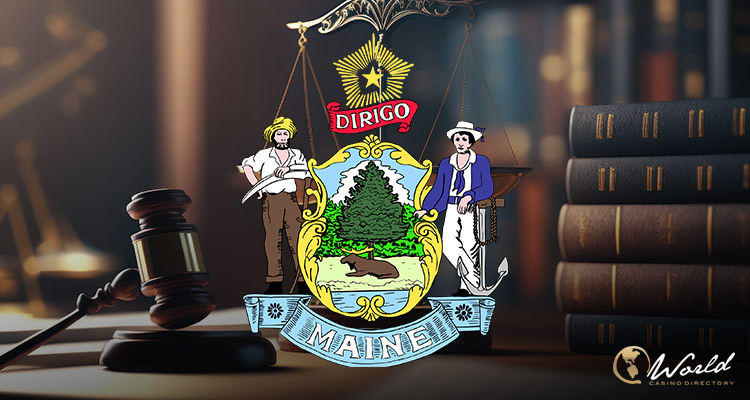Two months since the federally recognized tribes launched online sports betting, lawmakers in Maine have announced public hearings on the expansion of tribal rights to include other forms of gambling. The hearings on three proposals for tribal operations to include online gambling, casino, beano terminals, and horse racing are reportedly to be held in Augusta on January 3, 2024.
Tribal Gaming Expansion Proposals:
As reported by Portland Press Herald (PPH), the gambling expansion proposals follow the 2022 gambling bill that allowed more than 570 federally recognized Native American tribes to operate sports betting in the state. The measure was opposed by Gov. Janet Mills who heavily leaned on the 1980 Maine Indian Land Claims Settlement Act to resist to the tribal gaming bill. But the tribes managed to include the gambling proposal in the scope of the sovereignty rights that they considered affected by the 1980 Act and reportedly worked with community activists and lawmakers to push the bill proposal.
Bill Proposal L.D.1777:
The bill proposal L.D.1777 sponsored by lawmakers such as Rep. Laura Supica, Senate President Troy Jackson, and House Speaker Rachel Talbot Ross, would allow federally recognized tribes to expand internet gambling to additionally include games of “skill or chance offered through the Internet in which an individual wagers money or something of monetary value for the opportunity to win money or something of monetary value,” as PPH reports.
Tax Revenue Distribution:
As for the tax revenue, the lawmakers propose that the state continue to collect a 10% tax from the gross gaming revenues. As PPH reports, 65% of the tax revenue is currently allocated to the General Fund and 5.5% to the state’s Sire Stakes Fund and, respectively, the Maine Harness Racing Commission. However, Supica reportedly proposes the allocation of 40% of the gaming tax revenue to the state’s E-9-1-1 Fund to support communication systems, 20% to the Opioid Use Disorder Prevention and Treatment Fund, and 20% to the Emergency Housing Relief Fund, according to the source.
Economic Support:
The bill also anticipate the state to continue to receive 10% each for its administrative services and for its problem gaming programs. As reported, Supica said that the bill would increase investments in public services and support economic development of the tribes and the communities. Supica reportedly said: “I don’t see this as an irresponsible policy that’s going to cannibalize our services. I think it’s something that could be very good for our services, especially in central and northern Maine where we are really economically depressed.”
But Steve Silver, chairman of the Maine Gambling Control Board, reportedly opposed the bill arguing that the sole approval of tribal gaming would affect the business of the two state casinos. As these casinos generated more than $69 million in revenue in 2022, Silver said that the current proposal would deprive the state of about $2.4 million for public education and other services. He said in a statement: “Maine absolutely should consider legalizing Internet Gaming (“iGaming”). Overall, LD 1777 needs more modification before moving forward. I urge you to adopt an open, free-market approach that includes the Tribes and the casinos while also reconsidering the proposed taxation and regulatory model.”
L.D. 1944 and L.D. 1992:
As reported by PPH, other two bill proposals sponsored by Rep. Ben Collings complement the Supica’s proposed measure. Indeed, L.D.1944 would reportedly allow the state to negotiate casino developments on tribal and non-tribal lands while the bill L.D.1992 would allow federally recognized tribes to operate electronic beano terminals and horse racing. As reported, the measure would keep the 10% gaming tax on such operations.
The three proposals to pass a bill that would allow tribal gaming to expand beyond the current operations come after the tribes launched online sports betting in Maine in November 2023 through partnerships with Caesars Sportsbook and DraftKings. According to PPH, the market recorded a $76 million handle already by December 28, 2023 to generate $887,000 in tax revenue for the state and seemingly propel the current lawmakers’ activities.



